CSUN University Library celebrates Native American Heritage Month this November. Log into OneSearch to get online access or request through Interlibrary Loan.
There will also be a physical book display inside the University Library Lobby beginning November 9th.
Online copies of these books may be limited through the CSUN University Library, if it is unavailable you can check the Los Angeles Public Library or other local libraries near you for online access, or visit in person for physical copies.
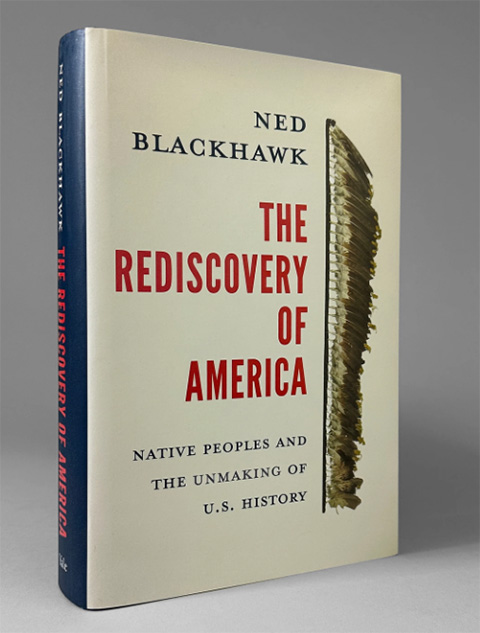
The most enduring feature of U.S. history is the presence of Native Americans, yet most histories focus on Europeans and their descendants. This long practice of ignoring Indigenous history is changing, however, with a new generation of scholars insists that any full American history address the struggle, survival, and resurgence of American Indian nations. Indigenous history is essential to understanding the evolution of modern America.
Ned Blackhawk interweaves five centuries of Native and non‑Native histories, from Spanish colonial exploration to the rise of Native American self-determination in the late twentieth century.
Blackhawk’s retelling of U.S. history acknowledges the enduring power, agency, and survival of Indigenous peoples, yielding a truer account of the United States and revealing anew the varied meanings of America.
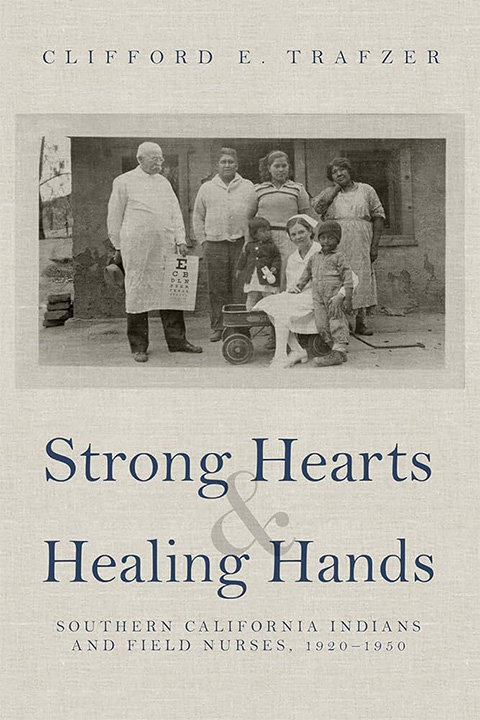
In 1924, the United States began a bold program in public health. The Indian Service of the United States hired its first nurses to work among Indians living on reservations. This corps of white women were dedicated to improving Indian health. In 1928, the first field nurses arrived in the Mission Indian Agency of Southern California. These nurses visited homes and schools, providing public health and sanitation information regarding disease causation and prevention.
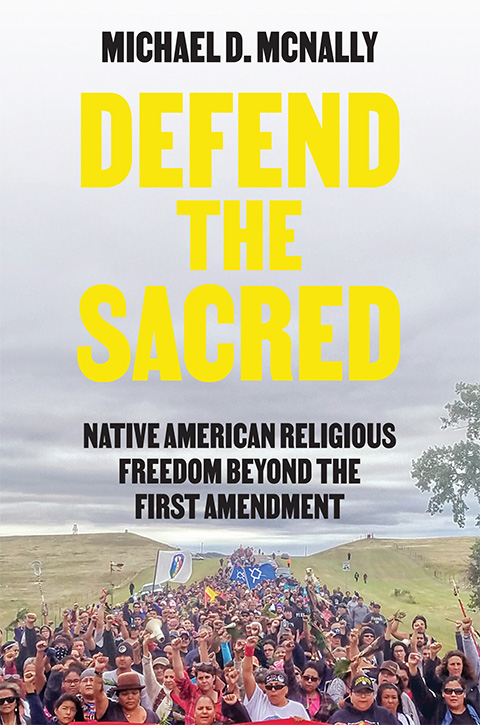
From North Dakota’s Standing Rock encampments to Arizona’s San Francisco Peaks, Native Americans have repeatedly asserted legal rights to religious freedom to protect their sacred places, practices, objects, knowledge, and ancestral remains. But these claims have met with little success in court because Native American communal traditions don’t fit easily into modern Western definitions of religion. In Defend the Sacred, Michael McNally explores how, in response to this situation, Native peoples have creatively turned to other legal means to safeguard what matters to them.
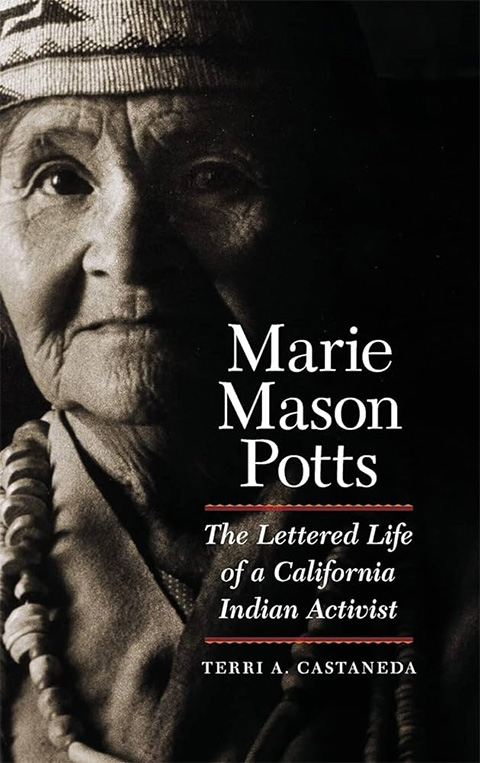
Born in the northern region of the Sierra Nevada mountains, Marie Mason Potts (1895-1978), a Mountain Maidu woman, became one of the most influential California Indian activists of her generation. In this illuminating book, Terri A. Castaneda explores Potts's rich life story, from her formative years in off-reservation boarding schools, through marriage and motherhood, and into national spheres of Native American politics and cultural revitalization.
Potts's voluminous correspondence documents her steadfast conviction that California Indians deserved just compensation for their stolen ancestral lands, a decent standard of living, the right to practice their traditions, and political agency in their own affairs. Drawing extensively from this trove of writings, Castaneda privileges Potts's own voice in the telling of her story and offers a valuable history of California Indians in the twentieth century.
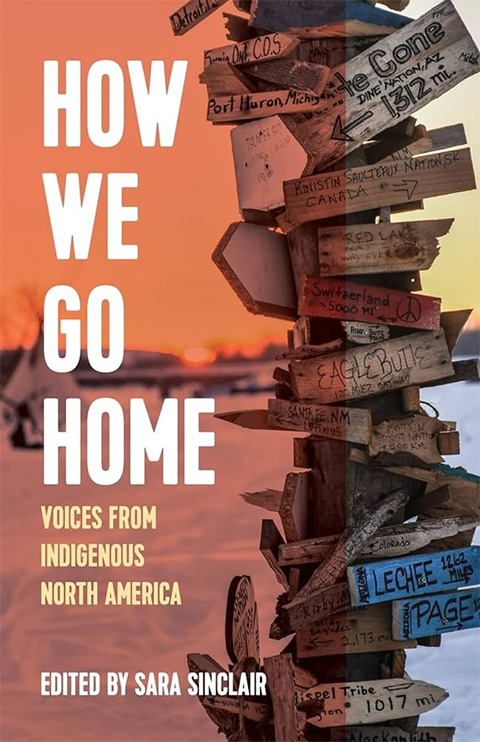
In myriad ways, each narrator’s life has been shaped by loss, injustice, and resilience—and by the struggle of how to share space with settler nations whose essential aim is to take all that is Indigenous.
Hear from Jasilyn Charger, one of the first five people to set up camp at Standing Rock, which kickstarted a movement of Water Protectors that roused the world; Gladys Radek, a survivor of sexual violence whose niece disappeared along Canada’s Highway of Tears, who became a family advocate for the National Inquiry into Missing and Murdered Indigenous Women and Girls; and Marian Naranjo, herself the subject of a secret radiation test while in high school, who went on to drive Santa Clara Pueblo toward compiling an environmental impact statement on the consequences of living next to Los Alamos National Laboratory. Theirs are stories shaped by loss, injustice, resilience, and the struggle to share space with settler nations.
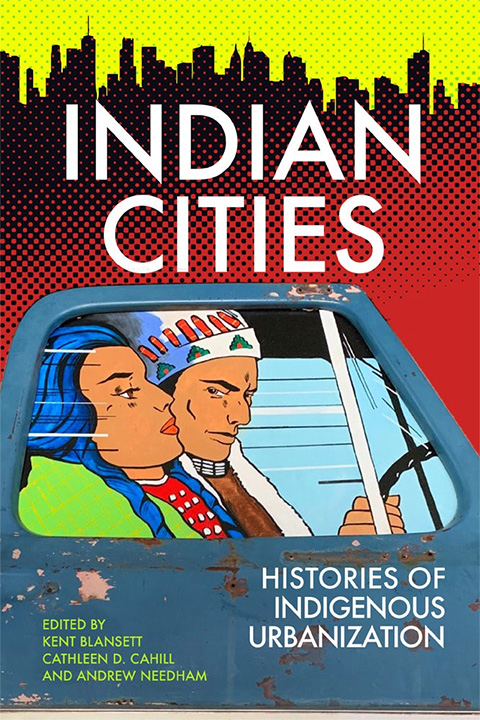
From ancient metropolises like Pueblo Bonito and Tenochtitlán to the twenty-first century Oceti Sakowin encampment of NoDAPL water protectors, Native people have built and lived in cities—a fact little noted in either urban or Indigenous histories. By foregrounding Indigenous peoples as city makers and city dwellers, as agents and subjects of urbanization, the essays in this volume simultaneously highlight the impact of Indigenous people on urban places and the effects of urbanism on Indigenous people and politics.
All the contributions to this volume show how, from colonial times to the present day, Indigenous people have shaped and been shaped by urban spaces. Collectively they demonstrate that urban history and Indigenous history are incomplete without each other.
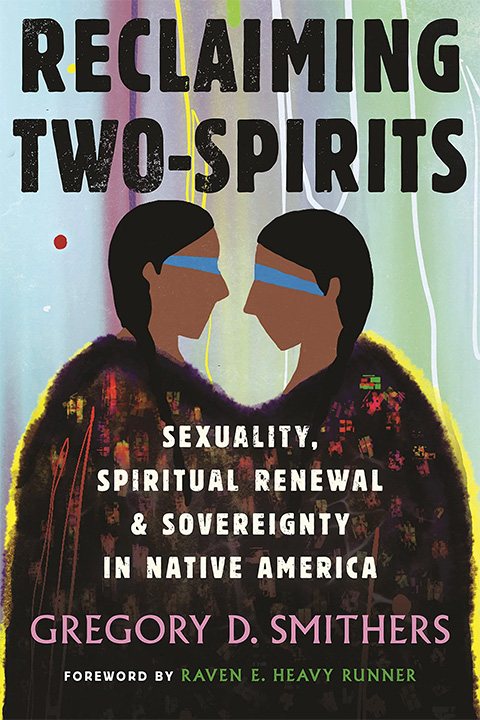
Reclaiming Two-Spirits decolonizes the history of gender and sexuality in Native North America. It honors the generations of Indigenous people who had the foresight to take essential aspects of their cultural life and spiritual beliefs underground in order to save them.
Drawing on written sources, archaeological evidence, art, and oral storytelling, Reclaiming Two-Spirits spans the centuries from Spanish invasion to the present, tracing massacres and inquisitions and revealing how the authors of colonialism’s written archives used language to both denigrate and erase Two-Spirit people from history. But as Gregory Smithers shows, the colonizers failed—and Indigenous resistance is core to this story. Reclaiming Two-Spirits amplifies their voices, reconnecting their history to Native nations in the 21st century.
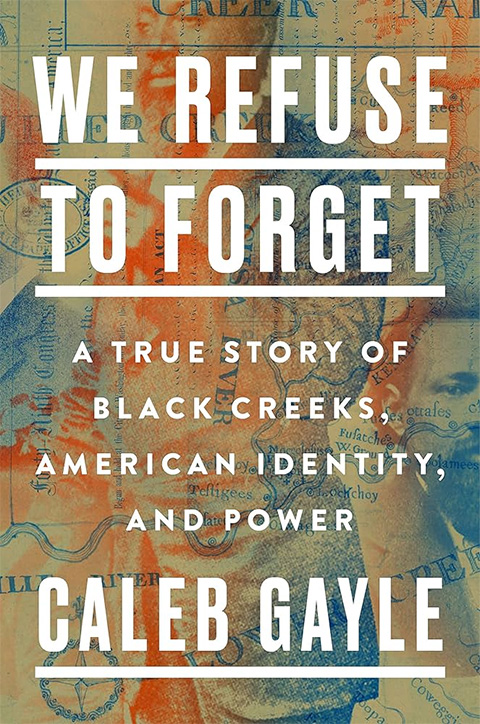
In We Refuse to Forget, award-winning journalist Caleb Gayle tells the extraordinary story of the Creek Nation, a Native tribe that two centuries ago both owned slaves and accepted Black people as full citizens. Thanks to the efforts of Creek leaders like Cow Tom, a Black Creek citizen who rose to become chief, the U.S. government recognized Creek citizenship in 1866 for its Black members. Yet this equality was shredded in the 1970s when tribal leaders revoked the citizenship of Black Creeks, even those who could trace their history back generations—even to Cow Tom himself.
Why did this happen? How was the U.S. government involved? And what are Cow Tom’s descendants and other Black Creeks doing to regain their citizenship? These are some of the questions that Gayle explores in this provocative examination of racial and ethnic identity. By delving into the history and interviewing Black Creeks who are fighting to have their citizenship reinstated, he lays bare the racism and greed at the heart of this story. We Refuse to Forget is an eye-opening account that challenges our preconceptions of identity as it shines new light on the long shadows of white supremacy and marginalization that continue to hamper progress for Black Americans.
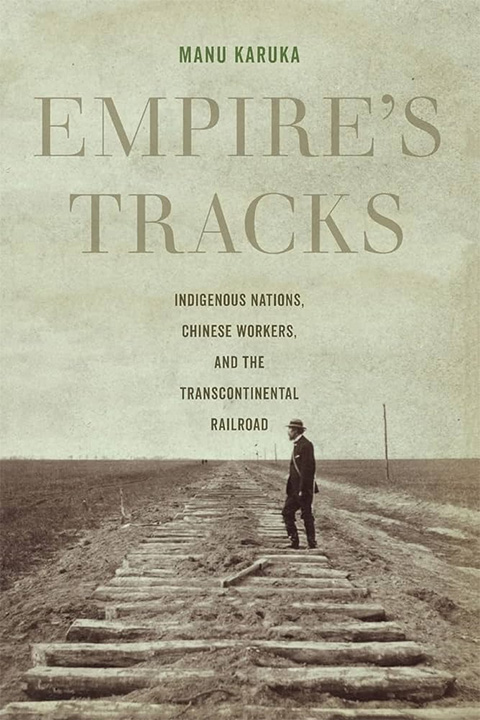
Empire’s Tracks boldly reframes the history of the transcontinental railroad from the perspectives of the Cheyenne, Lakota, and Pawnee Native American tribes, and the Chinese migrants who toiled on its path. In this meticulously researched book, Manu Karuka situates the railroad within the violent global histories of colonialism and capitalism. Through an examination of legislative, military, and business records, Karuka deftly explains the imperial foundations of U.S. political economy. Tracing the shared paths of Indigenous and Asian American histories, this multisited interdisciplinary study connects military occupation to exclusionary border policies, a linked chain spanning the heart of U.S. imperialism. This highly original and beautifully wrought book unveils how the transcontinental railroad laid the tracks of the U.S. Empire.
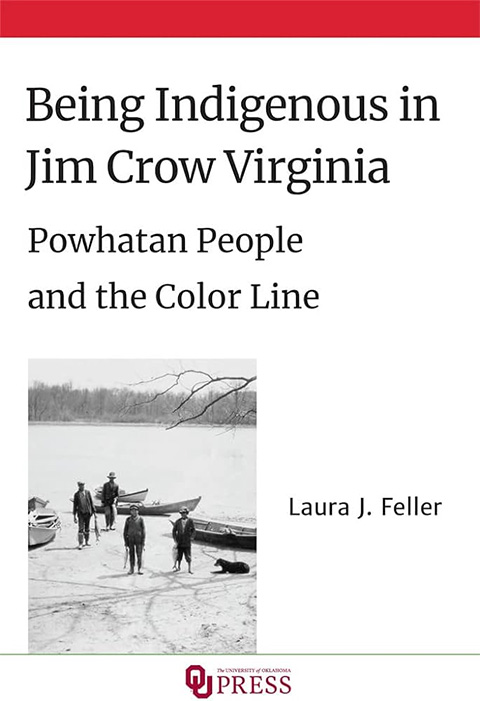
Virginia’s Racial Integrity Act of 1924 recodified the state’s long-standing racial hierarchy as a more rigid Black-white binary. Then, Virginia officials asserted that no Virginia Indians could be other than legally Black, given centuries of love and marriage across color lines. How indigenous peoples of Virginia resisted erasure and built their identities as Native Americans is the powerful story this book tells. Spanning a century of fraught history, Being Indigenous in Jim Crow Virginia describes the critical strategic work that tidewater Virginia Indians, descendants of the seventeenth-century Algonquian Powhatan chiefdom, undertook to sustain their Native identity in the face of deep racial hostility from segregationist officials, politicians, and institutions.
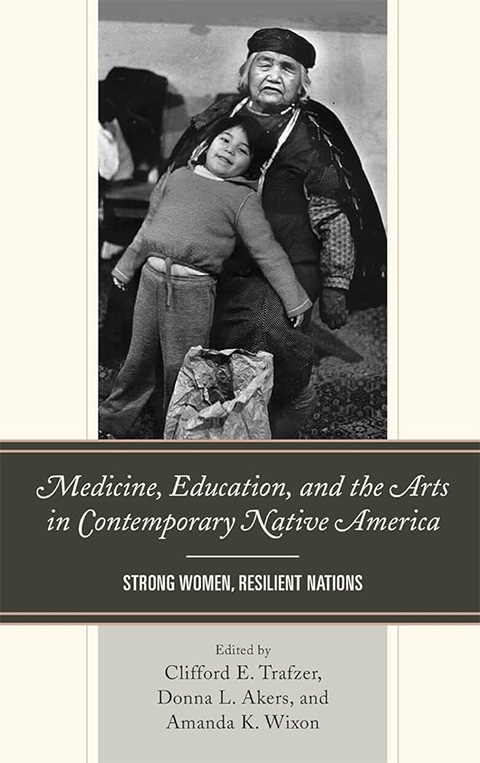
This book offers twenty original scholarly chapters featuring historical and biographical analyses of Native American women. The lives of women found her contributed significantly to their people and people everywhere. The book presents Native women of action and accomplishments in many areas of life. This work highlights women during the modern era of American history, countering past stereotypes of Native women. With the exceptions of Pocahontas and Sacajawea, historians have had little to say about American Indian women who have played key roles in the history of their tribes, their relationship with others, and the history of the United States. Indigenous women featured herein distinguished themselves as fiction and non-fiction writers, poets, potters, basket makers, musicians, and dancers. Other women contributed as notable educators and women working in health and medicine. They are representative of many women within the Native Universe who excelled in their lives to enrich the American experience.

